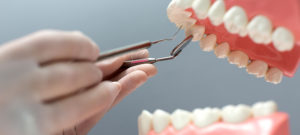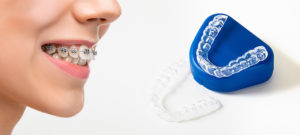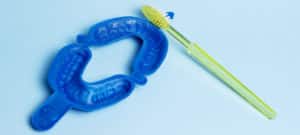Understanding the Causes of Teeth Sensitivity and How to Prevent It
Do your teeth hurt when you eat hot or cold foods? If so, you may be experiencing tooth sensitivity. This common condition can result from a variety of factors and can cause discomfort and pain when exposed to different temperatures. Learn about the causes, treatments, and preventative measures for tooth sensitivity here.
Identify the Cause of Your Tooth Sensitivity.
The first step to reducing tooth sensitivity is understanding its common causes. Tooth sensitivity can be caused by enamel loss, gum recession, cracks in teeth, exposed root surfaces, and plaque build-up. Identifying the underlying cause will help you determine if a professional dental exam and treatment are needed to reduce your sensitivity.
It’s important to understand the source of your tooth sensitivity in order to make the best decisions for reducing it. While enamel loss and gum recession may require an appointment with the dentist, other causes like plaque build-up can be prevented or reduced through at-home habits like proper oral hygiene and avoiding acidic foods and drinks. If you do find that your tooth sensitivity is related to deeper issues like enamel loss or cracks, then taking action from a professional dentist as soon as possible is essential for protecting your teeth.
Investigate Potential Dental Treatments for Relief
Once the underlying cause of your tooth sensitivity is identified, there are a variety of potential treatments available. Your dentist may recommend desensitizing toothpaste that contain compounds like strontium chloride or potassium nitrate to reduce sensations of tooth sensitivity. For more serious cases of sensitivity, your dentist may also offer in-office treatments such as fluoride gel treatments and sealing exposed root surfaces with bonding agents.
Follow an Oral Hygiene Routine for a Healthy Smile
Tooth sensitivity can be prevented by following a consistent oral hygiene routine. Regularly brushing your teeth twice a day with a soft-bristled toothbrush can help reduce plaque buildup and prevent cavities. Additionally, make sure to floss your teeth every day and visit your dentist for regular checkups and cleanings. Following these steps will keep your teeth healthy and reduce the risk of developing tooth sensitivity or other oral health issues.
Educate Yourself on Many Factors that Contribute to Teeth Sensitivit
Knowing what can cause tooth sensitivity and how to prevent it is the key to keeping your teeth healthy. While age, genetics and brushing techniques contribute, food and drinks that are acidic or too hot or cold can also lead to sensitive teeth. Additionally, tooth grinding, gum recession, and using harsh mouthwashes or toothpastes might be other factors affecting your teeth. To protect yourself from painful sensitivity, be sure to drink plenty of water throughout the day and limit sugary snacks and drinks.
It’s important to talk to your dentist if you are experiencing tooth sensitivity, as they may be able to identify the underlying problems contributing to this issue. Your dentist might also offer additional suggestions such as fluoride rinses or specialized toothpastes that can help with sensitive teeth. Furthermore, there are also several treatments available that can help reduce the pain caused by your sensitive teeth, ranging from desensitizing gels and varnishes to dental sealants or even laser treatments. Whatever the cause of your tooth sensitivity is, it’s important to address it quickly for a greater chance of relief and improved oral health in the long run.
Try Home Remedies to Help Alleviate Symptoms
If you already have sensitive teeth, there are a few home remedies that can help alleviate symptoms. Gargling with salt water may reduce the pain and discomfort associated with sensitive teeth; simply mix one teaspoon of salt in warm water and swish it around your mouth for a few minutes each day. You can also try applying desensitizing toothpaste on a soft-bristled brush to help block the teeth’s sensitivity to temperature and pressure. With these methods, you can protect your mouth from uncomfortable sensitivity while continuing to enjoy cold and hot foods.







